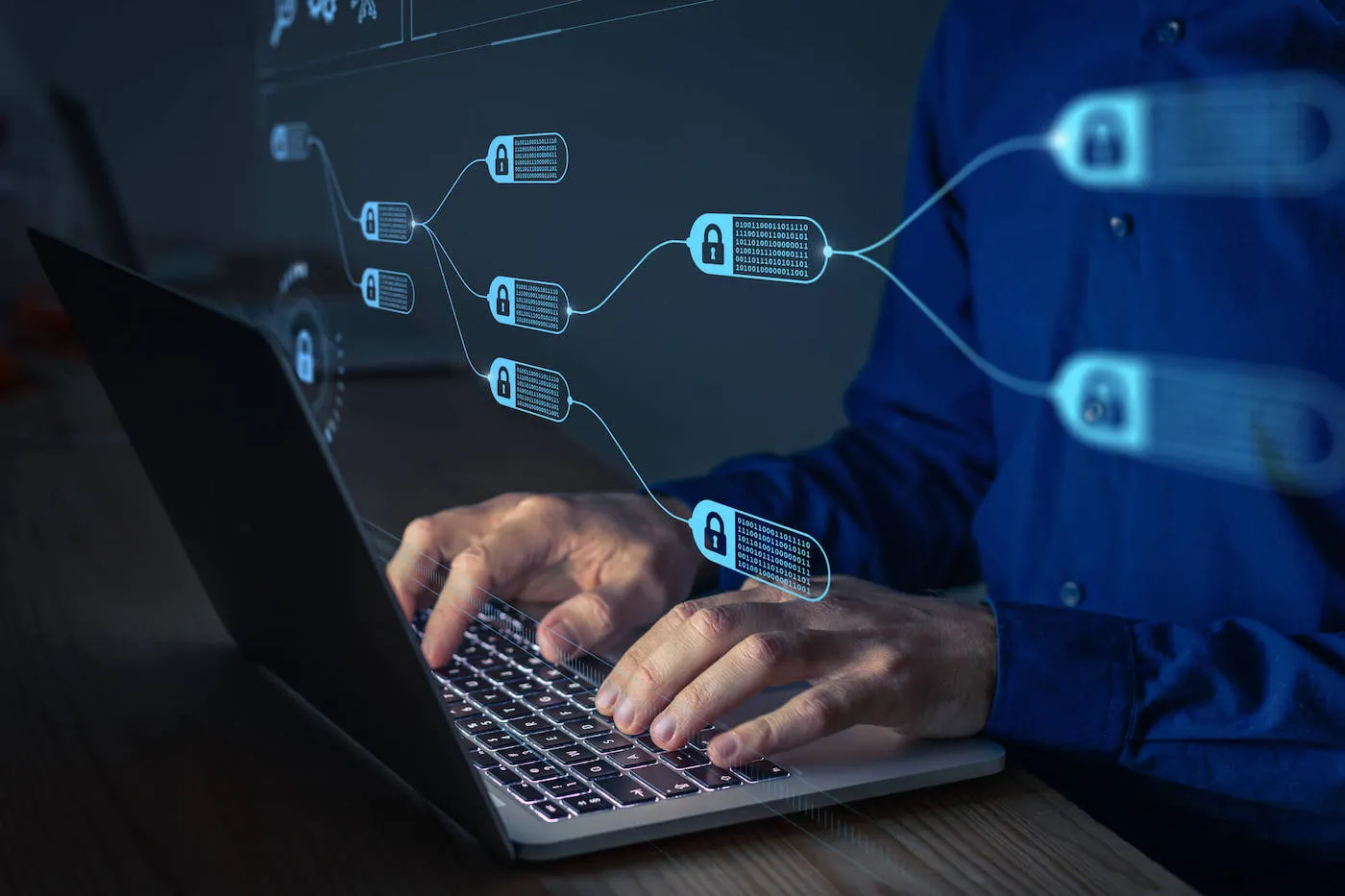What Is Blockchain Technology?
Quick Answer
Blockchain refers to a decentralized public ledger that records transactions and tracks assets. Although blockchain was initially designed for cryptocurrencies, all sorts of assets can be traded and tracked on a blockchain network.

A blockchain is an unalterable, decentralized ledger that facilitates transactions and helps track assets being traded. The technology itself is complex, but blockchains can provide a potentially more secure, private and cost-effective way to complete transactions.
To learn more about how blockchain technology works, here's a basic guide to help you get started.
How Does Blockchain Work?
A blockchain's ledger is "immutable," meaning it cannot be altered or tampered with, and this can make it a more reliable record-keeping tool than other kinds of databases. Blockchains can either be accessible to the general public or only to select parties.
Here's a step-by-step process of how blockchain technology works:
- Someone submits a transaction.
- The request is broadcast to a peer-to-peer network of computers, called nodes.
- The nodes check the transaction against existing records and use complex algorithms to validate the transaction and the user's status.
- The verified transaction is added to the ledger in the form of a block, which includes other recent transactions.
- The block is added to the existing blockchain on which the transaction was processed, and the transaction is complete.
Once a transaction has been recorded, it cannot be changed. If an error has been made during the recording process, a new one can be created to reverse the error, but both transactions will stay on the blockchain.
Public blockchains, such as the ones used for Bitcoin and other cryptocurrencies, allow anyone to participate and view transactions. But while the ledger is public, personal information is anonymized. Public blockchains are decentralized, meaning they are not controlled by a central organization, such as a government or corporation.
There are also private blockchains governed by a single organization that can only be used by those who have been invited to participate. Private blockchains may be used by a company to track goods or provide a way to verify dealings with other companies.
How Is Blockchain Used?
Blockchain technology traces its origins back to the early 1990s, but it wasn't widely used until Bitcoin came on to the scene in 2009. There are many real (and hypothetical) applications for the technology. Here are just a few examples:
- Cryptocurrency: Blockchain technology is the foundation of cryptocurrencies. The data in a blockchain contains details about the transaction such as the sender, receiver and amount exchanged.
- Voting: While it's not yet in use, blockchain technology could allow voters to cast their ballots with a smartphone, tablet or computer and get an instantly verifiable result.
- Banking: Because it uses a single and unalterable ledger, blockchain technology can help speed up financial transactions and also cut related costs. Some estimates say that the financial services industry could save billions of dollars using blockchain technology.
- Health care: Using blockchain technology, health care service providers can share medical information about patients. Encryption and permissions to access the data can help protect patient privacy.
Is Blockchain Secure?
One of the hallmarks of blockchain technology is its security. When you submit a transaction to the network, it's verified by nodes in the network. And because the ledger is decentralized, there's less risk of an organization getting hacked or leaking information that could compromise your information: There's no central point of access vulnerable to hackers.
Finally, blockchain technology uses cryptography to verify transactions and add them to their applicable block. Once a transaction is in the blockchain, it cannot be tampered with.
That said, there are some potential risks associated with blockchain-related applications. If you're transacting with cryptocurrency, for instance, you'll provide a digital signature, in the form of a private key. If someone manages to steal that key, they could access your cryptocurrency wallet and steal your digital assets.
Additionally, cryptocurrency exchanges and other organizations operating through a blockchain have fallen victim to hackers.
Finally, the type of blockchain that's being used can also impact your security. Because public blockchains allow anyone to join and validate transactions, they may not provide as much privacy as private blockchains. On the flip side, private blockchains don't provide as much protection against hacking because they are centralized, which creates an access point for hackers.
Learn More About Blockchain Technology
Blockchain technology comes with a steep learning curve. But once you get the hang of it, it's easy to see its benefits and why investors, businesses and even government agencies are using blockchains to reduce costs, protect data privacy and increase trust in the process.
If you're looking to get into the weeds about how blockchain technology works, you can find a wealth of information provided by cryptocurrency exchanges and financial services companies that use the technology to run their businesses.
What makes a good credit score?
Learn what it takes to achieve a good credit score. Review your FICO® Score for free and see what’s helping and hurting your score.
Get your FICO® ScoreNo credit card required
About the author
Ben Luthi has worked in financial planning, banking and auto finance, and writes about all aspects of money. His work has appeared in Time, Success, USA Today, Credit Karma, NerdWallet, Wirecutter and more.
Read more from Ben